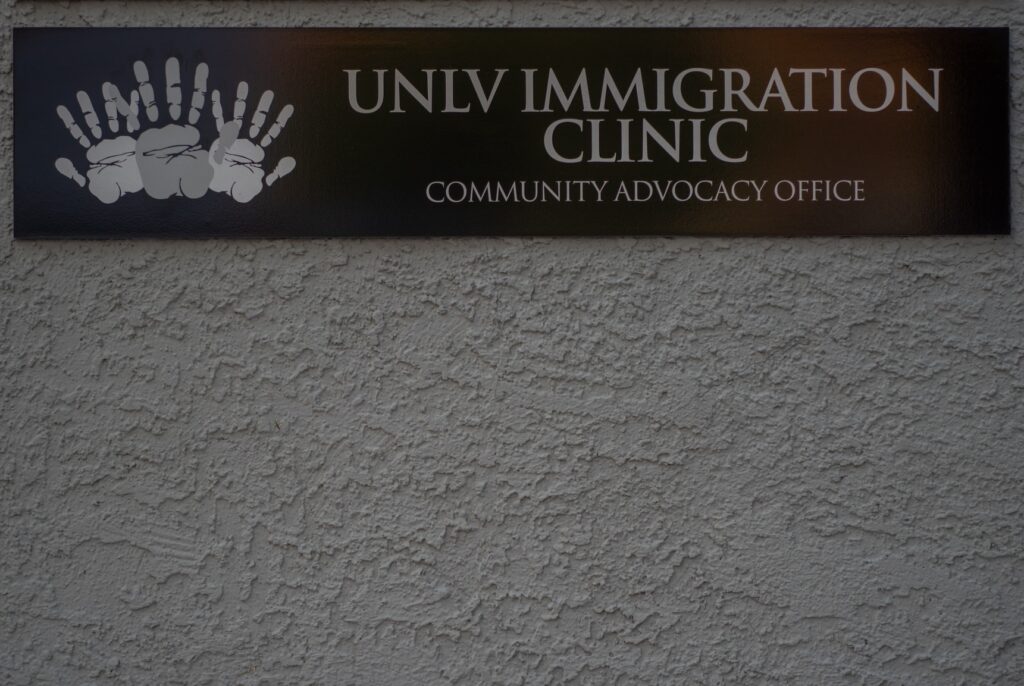
LAS VEGAS, NV — Since President Donald Trump was elected to his second term, his regime has made a point to ramp up the arrests and detainment of undocumented, and multiple times documented, immigrants, as well as the arrests of US citizens just accused of being undocumented.
Nevada is no exception to this trend.
Alissa Cooley Yonesawa, managing attorney of the University of Nevada, Las Vegas Immigration Clinic, said there was a significant increase in calls to the clinic in the first three months of 2025.
The managing attorney said they received 421 requests for assistance in the last six months, and 296 of those came in 2025.
As the regime continues its crackdown on immigrant communities, Erika Marquez, organizer at Make The Road Nevada, emphasized that it is more important that everyone knows their rights when dealing with Immigration and Customs Enforcement (ICE) and law enforcement to protect their neighbors.
If ICE comes to your home
“When ICE comes, literally knocking on your door, you as a US citizen, as a permanent resident, as any person who resides in the United States, you have the full protection of the Fourth Amendment,” Cooley Yonesawa said.
Under the Fourth Amendment, your home is where you have the highest expectation of privacy, so if ICE or any law enforcement official comes knocking on your door, you are under no obligation to open the door unless they have a valid judicial warrant, according to Cooley Yonesawa.
She advised that you should demand to see the warrant through your door’s peephole or a window, but do not open your door even a crack for law enforcement until you verify the warrant. Officials will use even a slightly open door to push their way in.
If ICE comes to your place of work
If ICE comes to your place of work, their legal access depends on how public the institution is that you work for.
While wholly private businesses not open to the public operate largely similar to homes, public institutions and customer service businesses have a slightly different set of rules.
In businesses that have a “front of house” open to the public, ICE only has permission to enter areas open to the public if they don’t have a judicial warrant, according to Cooley Yonesawa.
Agents cannot legally enter places marked for employees or staff members only unless a member of staff lets them in or they have an official warrant.
Public institutions like schools and public libraries work the same way, according to Cooley Yonesawa.
If you see ICE out in public
If you see ICE out in the open, and if they are confronting or trying to apprehend someone, you are allowed to record them and take photos of the interaction.
Cooley Yonesawa said you should not intervene and absolutely don’t escalate the situation, but instead try to document as much information about the interaction as possible.
“Don’t try to intervene or escalate the situation, because it can end up getting worse for the impacted person,” Cooley Yonesawa said. “It is much more useful for you if you take detailed notes, take photos, try to get badge numbers, if you can take as much information as possible, because that can be very useful.”
If ICE approaches you directly
Cooley Yonesawa said that if you are approached directly by ICE or anyone presenting themselves as law enforcement asking what your name is, you do not have to answer.
Instead, you can ask “Am I free to leave?” and if the officers say you are, walk away calmly. Legally they cannot say you are not free to leave unless they have a warrant signed by a judge, according to Cooley Yonesawa.
She said if ICE or law enforcement say ‘No, you are not free to leave,’ you should ask if they have a warrant signed by a judge. If they say no, then Cooley Yonesawa advises that you say, “Then I’m free to leave,” and walk away. If they do have a warrant, ask to see it and verify that it is a legitimate judicial warrant.
These strategies still may not work, officers might still insist on detaining you even if they do not have a warrant, like they did in the arrest of Tufts student Rumeysa Ozturk.
If law enforcement still insists on detaining you despite not having a warrant, or if they do have a warrant and can lawfully detain you, both Cooley Yonesawa and Marquez say it is important that you remain silent.
“Most of the time, just like in criminal cases, law enforcement relies on you confessing,” Cooley Yonesawa said. “Otherwise the system would collapse, if everybody just asserted all of their rights and didn’t hand over evidence.”
While you may still get detained with or without a warrant, Cooley Yonesawa said that it’s possible that knowing and asserting your rights can help you later in getting the case or evidence thrown out.
‘They’re relying on people not knowing their rights’
Both Marquez and Cooley Yonesawa said that the most important thing we can do to protect immigrant communities from the Trump regime’s increased crackdown is education.
All of Cooley Yonesawa’s strategies hinge on knowing your rights with law enforcement and knowing the difference between a real judicial warrant and a piece of paper signed by an immigration judge.
Knowledge on these topics is effective because many deportation cases get thrown out due to rights violations, and documents signed by immigration judges do not qualify as warrants, but ICE still tries to use them.
“Their job should be hard,” Cooley Yonesawa said, “and they’re relying on fear. They’re relying on people not knowing their rights to make their job as easy as it has been. Historically, it never should have been easy to begin with.”
Make The Road Nevada hosts two immigration committee meetings to talk to members of local communities and teach them about their rights.
The National Immigration Law Center also has freely available documents on its website outlining how to find out if a warrant is a legitimate, judicial warrant.
Though the Trump regime is still increasing its efforts to violate the rights of all people in its pursuit of cracking down on immigrant communities, Marquez and Cooley Yonesawa both reinforce that we have rights.
“One of the things that we need to remember is that we have rights,” Marquez said, “Not depending on your legal status, you have rights.”
Mark Credico is an independent journalist working in Southern Nevada. He covers subjects including government accountability, homelessness, workers' unions and the environment.

